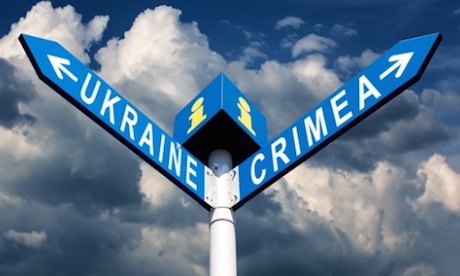While pro-Russian and pro-Western media have been spinning the Crimea crisis as either a heroic exercise in righting a past wrong or a land grab by a new Hitler, the legal position is far from straightforward.
Crimea was once an independent Tatar khanate, captured by Russia in the 18th century.
The Tatars were deported by Stalin as punishment for alleged collaboration with the Nazis — although some fought on either side in World War II.
In 1954, Nikita Khruschev (then Soviet leader), gifted the territory to Ukraine.
The decision was of no practical consequence at the time since both Russia and Ukraine were simply states within the USSR. There was, however, no public (or even parliamentary) consultation.
In the Gorbachev era, many Tatars returned. They now form about 12 per cent of the population (about 60 per cent are Russian, the remainder Ukrainians, Bulgarians etc.).
Strategically, Crimea is important for its natural resources and its ice-free, deepwater port of Sevastopol, a major base of Russia’s powerful Black Sea Fleet.
The international law claims are as complex as the history. Continue reading.
Justin Glyn SJ is a student of philosophy and theology in Melbourne who holds a PhD in international and administrative law.
Source: Eureka Street
Image: ShutterStock
Additional readingNews category: Analysis and Comment.




